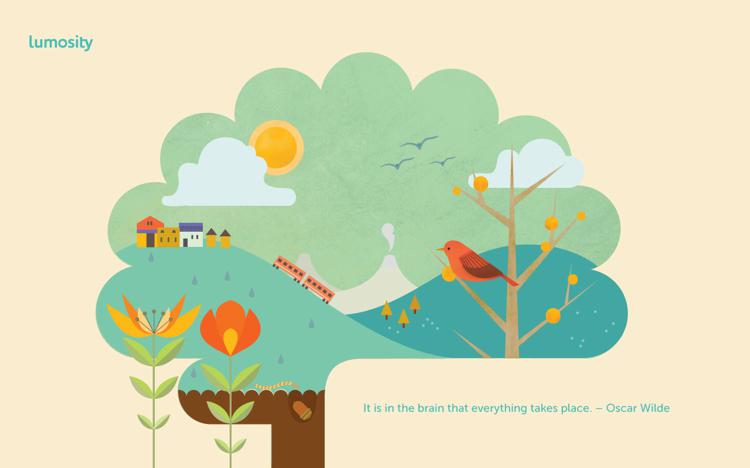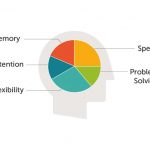I don’t know about you, but around these parts we get mighty skeptical about folks who want to get in our brain and poke around. That is why Lumosity scares us. That said, they have made a compelling case as a force to be reckoned with in the world of online games that can help the player becomes better by increasing brain activity. I guess if you want to make me smarter while I play a game – I’m good with that.
Launched in 2007 in San Francisco, California, they now have over 60 million registered users from 180 countries worldwide. A leading brain training and neuroscience research company whose games are designed to challenge core cognitive abilities, they may be on to something. Based on common neuropsychological and cognitive tasks, they’ve created challenging, adaptive games that are accessible to people of all ages.
Apparently brains need exercise just as much as bodies. I didn’t know that. But, now there’s a new way to meet the challenge, with entertaining online exercises that take just 10 minutes a day. They are a scientifically developed online brain fitness program demonstrated to improve memory and attention with fun and effective brain workouts. The 30-session program, developed by Lumos Labs, offers a daily mix of games, exercises, progress reports and brain health tips.
Designed for adults of all ages, their program was developed in collaboration with experts in neuroscience and cognitive psychology. Significant improvements in cognitive functions such as memory and attention were noticeable within a few weeks of training. In the NIH-funded ACTIVE study, researchers observed that gains made from cognitive training were maintained five years later.
Lumosity users have reported clearer and quicker thinking, improved memory for information such as names and numbers, increased alertness, elevated mood, and better concentration at work or while driving. A survey revealed that over 95% of the users considered the program to be fun.
Each cognitive training task has been structured as a game. A visual attention exercise simultaneously displays a bird and a letter for a fraction of a second, requiring users to identify both at the same time using peripheral vision. One of the working memory activities asks users to navigate a maze by remembering the location of hazards. “Working memory is fundamental to higher cognitive functions, including reasoning and reading comprehension, and improvements here will impact performance on many cognitive tasks,” said Dr. Moriah Thomason Caires, a neuroscience researcher at Stanford.
The difficulty level of each exercise adjusts to the ability of the user. As s/he progresses, the birds appear faster and there are more hazards in the maze. Each activity includes useful information such as what part of the brain is being exercised, and a progress report provided after every session makes it easy to track improvement.
All of this sounds great, but does it work? As one of the leading companies in brain training they certainly have a lot to live up to. At this point, it is a multimillion-dollar business with companies such as Jungle Memory, Nintendo and CogniFit all developing a wide range of user-friendly neuroscientific puzzles for the average person. Lumosity itself has grown by 150% year-on-year since its launch in 2005 and now reaches more than 35 million people worldwide. In January alone, the company’s mobile app was downloaded nearly 50,000 times a day and its revenue hit $24m
A recent article in The Guardian cited some of the findings that have come so far. They cite a 2008 study by the psychologist Susanne Jaeggi, in which she found that memory training increased intelligence and also implied that a person could boost their IQ by a full point per hour of training. However, when a group of psychologists working at Georgia Tech set out to replicate her findings there was no evidence for a rise in intelligence. It seems that measuring the effectiveness of tests like these are fraught with difficulty, leaving little in the way of peer reviewed studies. Meanwhile, other tests have shown that even an average video game can increase short term memory and reasoning ability – a result that is a far cry from the ruined future people predicted from the increase of gaming.
All in all it seems like there is still work to be done here to determine the full scope of any benefits. But the games are intriguing and also seem to be entertaining. Perhaps for now, that is enough to at least warrant a try.
Lumosity is available at lumosity.com










